Throughout November 6th-10th 2023, The 76th Annual Gulf and Caribbean Fisheries Institute (GCFI) Conference was held in Nassau, The Bahamas at the Atlantis Paradise Island Resort, and Perry Institute for Marine Science (PIMS) was well represented by staff members who traveled from near and far to attend.
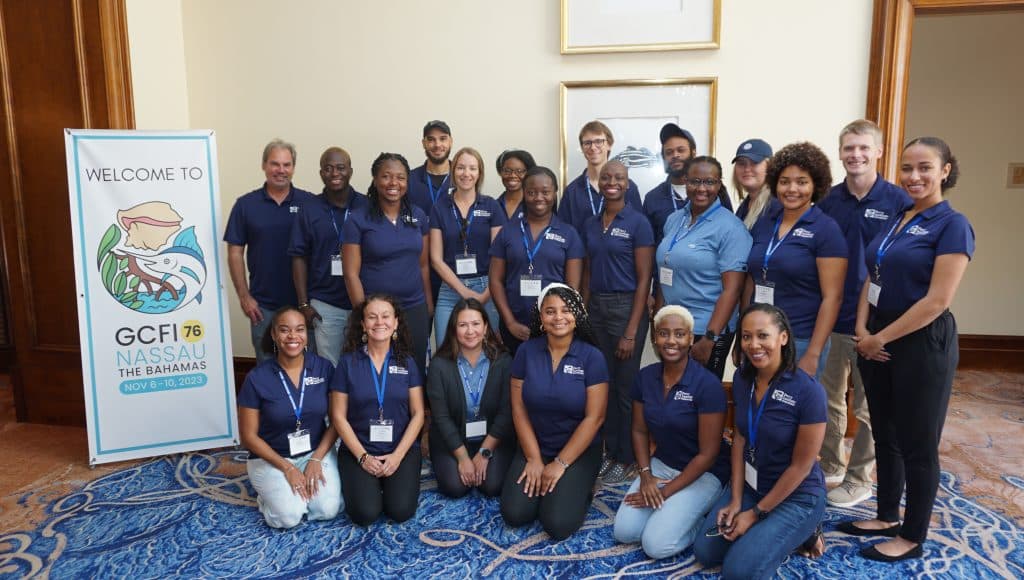
In 1947 GCFI was founded, “to promote the exchange of current information on the use and management of marine resources in the Gulf and Caribbean region”. GCFI brings together all relevant stakeholders involved in marine resource management such as scientists, government officials, and the commercial sector to network and discuss relevant environmental issues affecting them all.
The 76th GCFI conference was hosted by The Bahamas’ Forestry Unit who organized a full week of events filled with informative sessions, panel discussions, poster presentations, group socials and even field trips. As a growing organization with members stationed throughout islands of The Bahamas and cities of the United States of America, PIMS staff were all ecstatic to come together to participate and support each other at the conference. The main focus of the event were the informative sessions that were grouped into broader categories like governance, fisheries, climate change, communication and education and invertebrates. In these sessions scientists from over 38 countries took stage to present their project studies, creating opportunities to share knowledge and encourage future collaborations. Our scientists Dr. Karlisa Callwood, Dr. Valeria Pizarro, Dr. Krista Sherman, Candice Brittain, Makeda Serju, Will Greene and Sam Marshall all gave riveting presentations about the work they do at PIMS, covering a wide range of subjects from local stone crab fisheries to the use of drone technology in ecosystem monitoring. PIMS’ Community Conservation Education & Action (CCEA) Manager Candice Brittain stated, “Participating in GCFI’s 76th conference as both an attendee and presenter provided a platform to disseminate our research, education, and community engagement initiatives pertinent to marine research and conservation in The Bahamas. This event provided an opportunity for new insights, professional networking, and fostering collaborative partnerships for future work. The conference spotlighted significant research and conservation endeavors within The Bahamas and Caribbean region and facilitated discussions among stakeholders committed to addressing the challenges facing our marine ecosystems, acting as a catalyst for action and a commitment to sustaining our oceans’ resources.”
Poster presentations were also given by Danielle Cartwright, Meghyn Fountain, Taylor Walters, Valeria, Natalia, Silia, Will, Gimel, Karlisa and Gabrianne. As a first time presenter Meghyn exclaimed, “I was nervous, but so proud to be able to share our work with such a supportive community filled with so many great scientists. I’m already excited to present next year.”
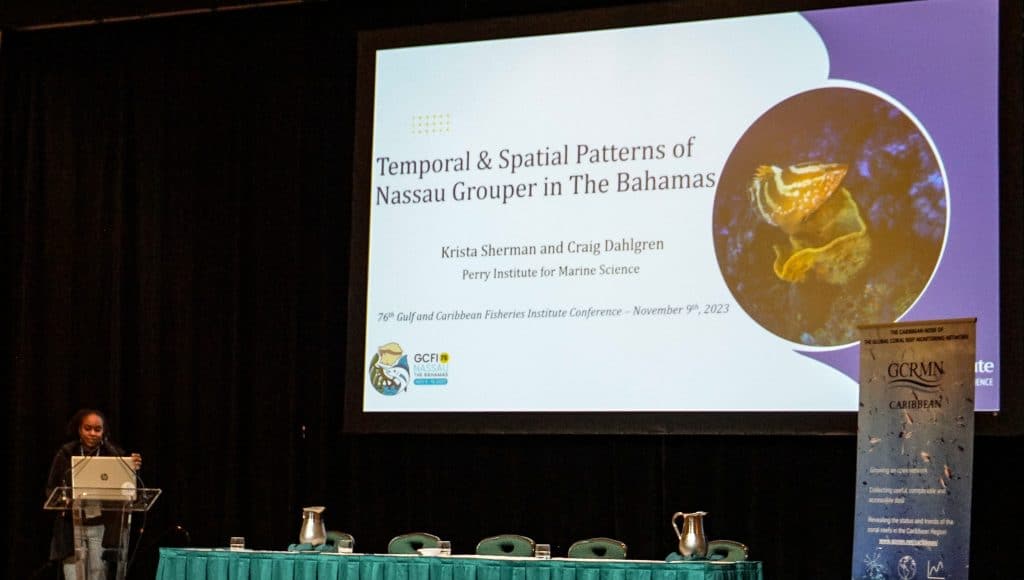
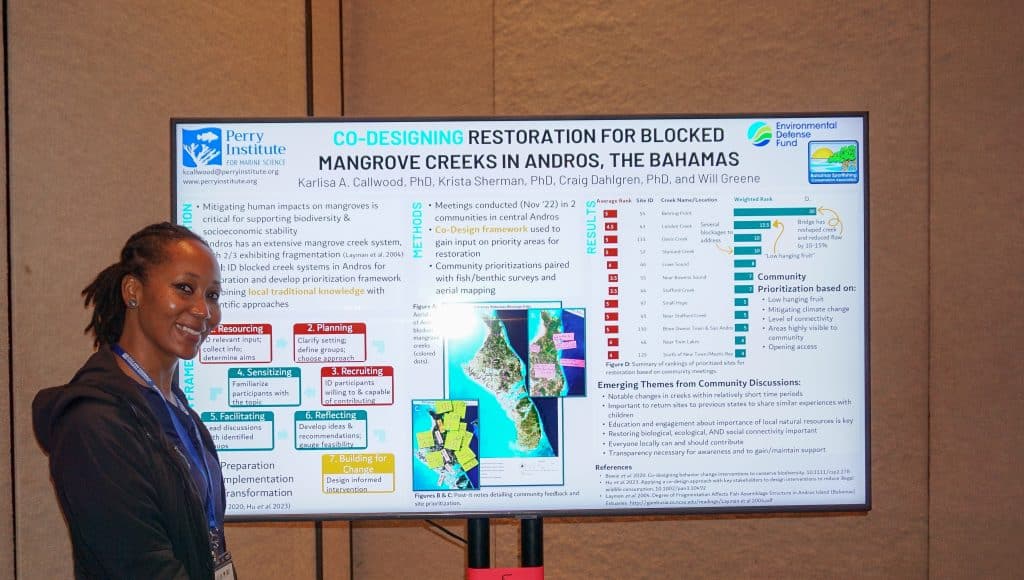
Conferences like GCFI are exceptionally valuable because they create spaces for collaborators to come together and exchange information, ideas, and technology all being used to help better manage, protect, and restore our natural resources. Moreso, attendees have the opportunity to network amongst other brilliant colleagues of the field and create long lasting career connections. For the duration of the conference the ballroom’s main hall was lined with table displays for the many organizations in attendance to distribute information, resources and even sample products.
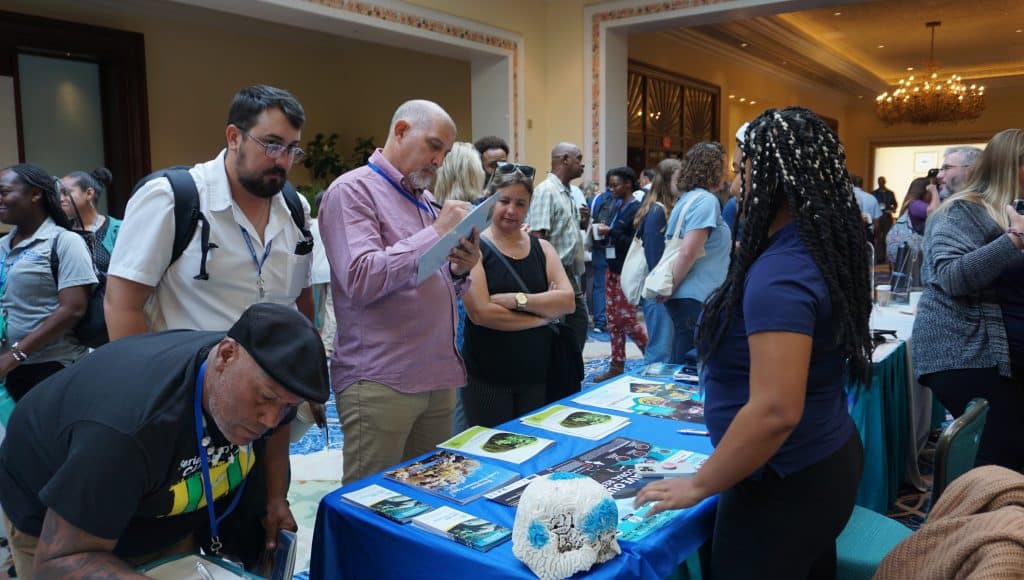
The freeflow area allowed PIMS staff to reconnect with local partners including Bahamas National Trust, The Nature Conservancy and the Cape Eleuthera Institute. PIMS Coral Technician Duran Mitchell stated, “my first GCFI was a great experience that allowed me to learn about so many different research projects happening in my own country. I had the chance to engage with many organizations I would like to work with in the future.”
PIMS is grateful for the opportunity to participate in events like GCFI and will continue supporting and contributing to collaboration, capacity building, and innovation in marine science throughout the region.
Dive deeper.
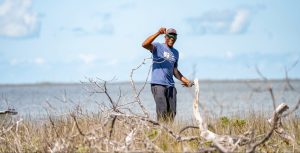
Rewilding the Marls of Abaco: PIMS Plants 100,000 Mangroves and Counting in 2024
As the afternoon sun bathes the Marls of Abaco in golden light, Bahamian boat captain Willis Levarity–locally known as “Captain to the Stars”–stands ankle-deep in soft, warm mud. A broad
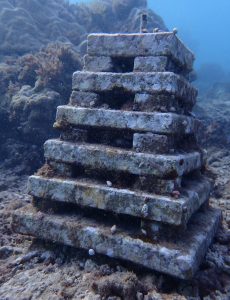
Unveiling Coral Reef Biodiversity: Insights from ARMS Monitoring Structures
An ARM teeming with new coral recruits and a diversity of marine life, highlighting reef recovery and biodiversity Understanding Coral Reef Biodiversity Most new PhDs in the natural sciences move
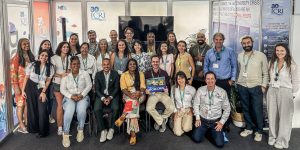
7 Key Takeaways from COP16: Confronting Coral Reef Challenges in a Changing Climate
United #ForCoral: Experts, advocates, and leaders from across the globe join forces at COP16 for the #ForCoral conference, hosted by the International Coral Reef Initiative. Together, they’re driving urgent action
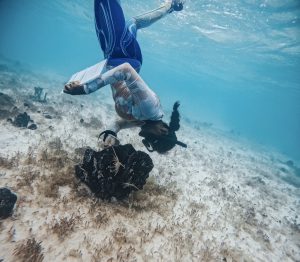
Fieldwork Wrap-Up: Strengthening MPA Management in The Bahamas
Marine protected areas (MPAs) are critical tools in the conservation of marine species and habitats, safeguarding reefs, seagrasses, and mangroves that provide vital ecosystem services to coastal communities. At the
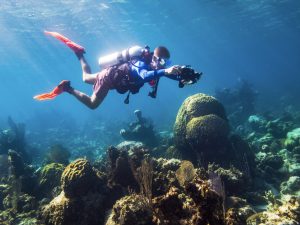
Coral Reef Monitoring with Photogrammetry: A New Era in Reef Health Assessment
Coral reefs are some of the most biodiverse ecosystems on the planet, providing crucial habitat for marine life and protecting coastal regions from erosion. Yet, these vibrant ecosystems are increasingly
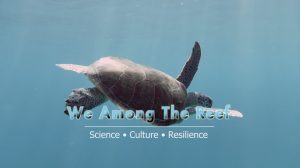
Watch “We Among the Reef:” A Documentary on the Abaco Barrier Reef
The Perry Institute for Marine Science invites you to watch “We Among the Reef,” a compelling documentary that illuminates the significance of the Abaco Barrier Reef and the resilience of



